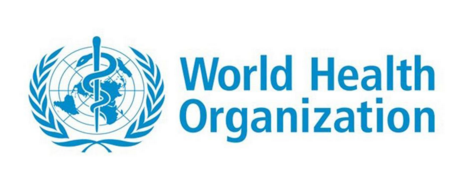WHO Director−General’s opening remarks at the media briefing on COVID−19 − 7 December 2020

- Hundreds of seroprevalence studies have been done around the world, which vary in quality, methods and the type of tests used. Despite their limitations, their results are fairly consistent: they tell us that most of the world’s population remains susceptible to infection with the COVID-19 virus.
- Seroprevalence studies can help us to understand how long immunity from natural infection lasts, which could also help us to understand how long immunity from vaccination might last.
- As countries plan to roll out vaccines in the coming weeks and months, we urge them to prioritize vaccinating those most in need, based on the Values Framework and Population Prioritization Roadmap issued by WHO’s Strategic Advisory Group of Experts on Immunization.
- Today the WHO Foundation announced the appointment of Anil Soni as its first Chief Executive Officer, from the beginning of next year.
______________________________
Good morning, good afternoon and good evening.
Last week I spoke about the importance of testing, which is vital for knowing where the virus is.
But it’s also important to know where the virus has been, and how many people might have been infected without showing symptoms or being diagnosed by testing.
To do that, seroprevalence studies are important, which look for antibodies in the blood of individuals, to evaluate the extent of infection in different populations.
Hundreds of seroprevalence studies have been done around the world, which vary in quality, methods and the type of tests used.
Some follow people or populations over time to show how an antibody response in the individual, or seroprevalence in populations, changes over time.
Despite their limitations, their results are fairly consistent: they tell us that most of the world’s population remains susceptible to infection with the COVID-19 virus.
We are still learning how strong immune responses are in different populations and for how long this immune response lasts.
In January, WHO launched the Unity studies, a global effort to standardize seroprevalence studies and the use of serologic tests.
So far more than 60 countries, including more than 40 low- and middle-income countries, are conducting one or more of these studies using WHO’s protocols.
We are providing technical, financial and operational support and building research capacities for these studies.
We continue to work with our global networks to better understand the proportion of the world’s population that has been exposed to this virus and how long immunity lasts in people who have been infected.
Seroprevalence studies can help us to understand how long immunity from natural infection lasts, which could also help us to understand how long immunity from vaccination might last.
As countries plan to roll out vaccines in the coming weeks and months, we urge them to prioritize vaccinating those most in need, based on the Values Framework and Population Prioritization Roadmap issued by WHO’s Strategic Advisory Group of Experts on Immunization.
These documents provide recommendations on who should be considered for vaccination first, and lays out the values that inform those recommendations.
These are not easy decisions.
Vaccinating health workers who are at high risk of infection will help to protect them and the health system.
People at highest risk of serious disease or death as a result of age are also a high priority group because protecting them will reduce severe disease and death and take the burden off health systems.
As supply increases, the next groups would include those who have higher risk of severe disease because of their underlying conditions, and marginalized groups at higher risk.
In the initial stages of rollout, with only a small proportion of a country’s population immunized it’s vital that governments, communities and individuals continue using proven public health tools.
===
Shortly after my election as Director-General in 2017, we analysed WHO’s funding situation, and saw that the Organization was too reliant on a handful of major donors.
In May of 2018 we announced our plans to establish a Foundation to reduce that reliance by generating funding from new sources.
In May of this year I announced the creation of the WHO Foundation, a new independent body to generate resources for the work of WHO from sources we have not accessed before.
Today the WHO Foundation announced the appointment of Anil Soni as its first Chief Executive Officer, from the beginning of next year.
Anil is an experienced global health expert, with experience in the public, private and non-profit sectors. His previous role was at Viatris, a pharmaceutical company, where he was head of global infectious diseases.
He has also held senior leadership roles at the Clinton Health Access Initiative and the Global Fund to Fight AIDS, Tuberculosis and Malaria.
Anil will play a vital role at a vital time, in supporting the WHO Foundation to achieve its goal of raising US$1 billion for global health over the next three years.
The Foundation will also become a key partner of the COVID-19 Solidarity Response Fund, which has so far raised US$238 million from more than 650,000 individuals, companies and philanthropies.
I would like to thank the United Nations Foundation and the Swiss Philanthropy Foundation for their partnership in the success of the Solidarity Response Fund so far.
And I’d like to congratulate Anil Soni, and we look forward to this new and exciting era, and implement the strategic solutions that can bring better resources to WHO.
I thank you.
——-
Vaccine acceptance is the next hurdle
COVID-19 vaccines are finally within reach, with several breakthroughs on the horizon. This is good news at the end of a difficult pandemic year.
But even after we have overcome the imminent challenges of sufficient supply, efficient rollout and equitable access, vaccine hesitancy will remain a major stumbling block to achieving the herd immunity that can protect us all.
Read more: https://www.who.int/news-room/feature-stories/detail/vaccine-acceptance-is-the-next-hurdle





